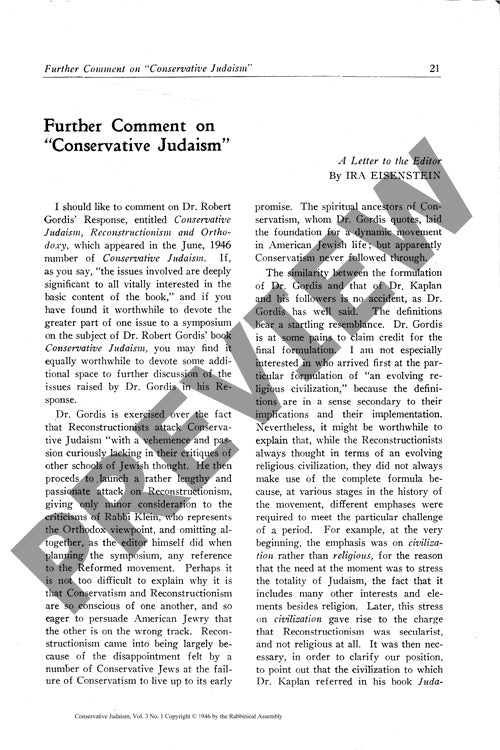Further Comment on Conservative Judaism
Couldn't load pickup availability
When Reconstructionist and Conservative Judaism clashed over approaches to Jewish law and theology in the mid-20th century, their philosophical differences revealed deeper tensions in modern Jewish thought. In his response to Dr. Robert Gordis' critique, Ira Eisenstein exposes fundamental disagreements between the movements through comparative analysis of their theological and methodological foundations. While both movements recognize Judaism as an "evolving religious civilization," Reconstructionists advocate for conscious, deliberate change whereas Conservatives favor change through authoritative interpretation. This divergence manifests particularly in approaches to modifying Jewish law - Reconstructionists support community legislation when interpretation proves insufficient, while Conservatives restrict changes to interpretive methods alone. Eisenstein challenges Conservative positions on the Chosen People doctrine, arguing that Jewish self-acceptance precedes rather than follows from theological conviction, and dismisses the Conservative distinction between "God" and "God-idea" as superficial. Though both movements share similar definitional frameworks, their substantial differences in implementation and practical application leave Conservative Judaism without clear alternatives to Reconstructionist approaches in community organization, legal evolution, and philosophical foundations. These unresolved questions render Conservative Jewish philosophy difficult to distinguish from both Reconstructionism and Orthodoxy.

More Information
-
Physical Description
-
Publication Information
Published
ISBN
-
Publication Credits
Ira Eisenstein

